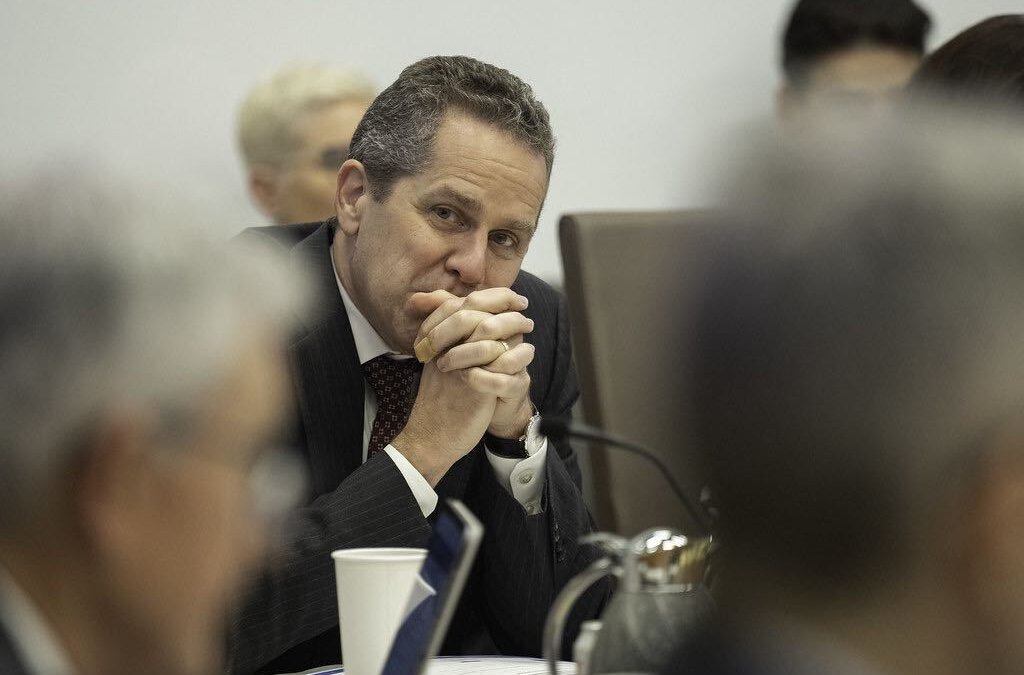WASHINGTON – Michael Barr, Vice Chair of the Federal Reserve, reaffirmed his intent to serve his full term during a heated House Financial Services Committee hearing on Wednesday.
The session was marked by Republican criticism of Biden-era financial regulations and calls for a pause in rulemaking until president-elect Donald Trump takes office.
Barr’s remarks came amid repeated questioning from lawmakers about potential interference with the Federal Reserve’s autonomy. Citing the fixed terms of office established for Federal Reserve officials, Barr echoed Chair Jerome Powell’s defense for the Board’s independence from the Federal Open Market Committee (FOMC) meeting earlier this month.
“As Chair Powell said, we serve fixed terms of office, and I intend to serve my fixed term office,” Barr stated, pushing back against suggestions that Trump might attempt to remove or demote Federal Reserve officials.
Committee Chair Patrick McHenry, R- N.C., set the tone for the hearing with sharp criticisms of the regulatory approach under the Biden administration. He argued that current policies are overly restrictive, backward-looking and detrimental to innovation in the financial sector.
“We need regulators who are forward-thinking, not stuck fighting the last war. The financial system of the future demands innovation, not obstruction,” McHenry said.
The hearing also included scrutiny of Federal Deposit Insurance Corporation (FDIC) Chair Martin Gruenberg. Gruenberg is expected to step down on Jan. 19 in light of a May report detailing toxic workplace culture at the FDIC. The chair faced scathing criticism and demands for immediate removal in the report’s aftermath.
“What really disturbs me is why chair Gruenberg, after six months ago, when you said you were going to resign, why are you still here?” asked Rep. Monica De La Cruz, R-Texas.
Republicans framed their broader concerns about financial regulation as a plea for stability ahead of Trump’s inauguration. Led by McHenry and his likely successor Rep. Andy Barr, R-Ky., they pressed regulators to avoid implementing significant new rules during the transition period.
Rep. Zach Nunn, R-Iowa, specifically requested confirmation that regulators would halt what he termed “burdensome and overreaching regulations.”
Barr acknowledged that while some routine tasks would continue, major new regulatory initiatives would likely be deferred until Trump’s appointees were in place.
“We all have other rulemakings that are routine business, like data collection or requirements related to combating elder fraud,” Barr said. “But on the major rulemakings that people are focused on, I plan to wait until my colleagues join.”
Barr specifically referenced three key interagency rulemaking initiatives concerning capital, liquidity, and long-term debt. “I look forward to working with my new colleagues at the OCC on those priorities,” he added.
Barr emphasized the importance of finalizing Basel III capital rules in the first half of 2025, citing their role in raising capital standards and addressing risks highlighted by the global financial crisis and recent banking sector stress.
“It’s important to finalize this process to ensure resilience across the financial system,” Barr said, adding that the rules would incorporate lessons from March 2023 by requiring banks to account for unrealized losses on their balance sheets.

